


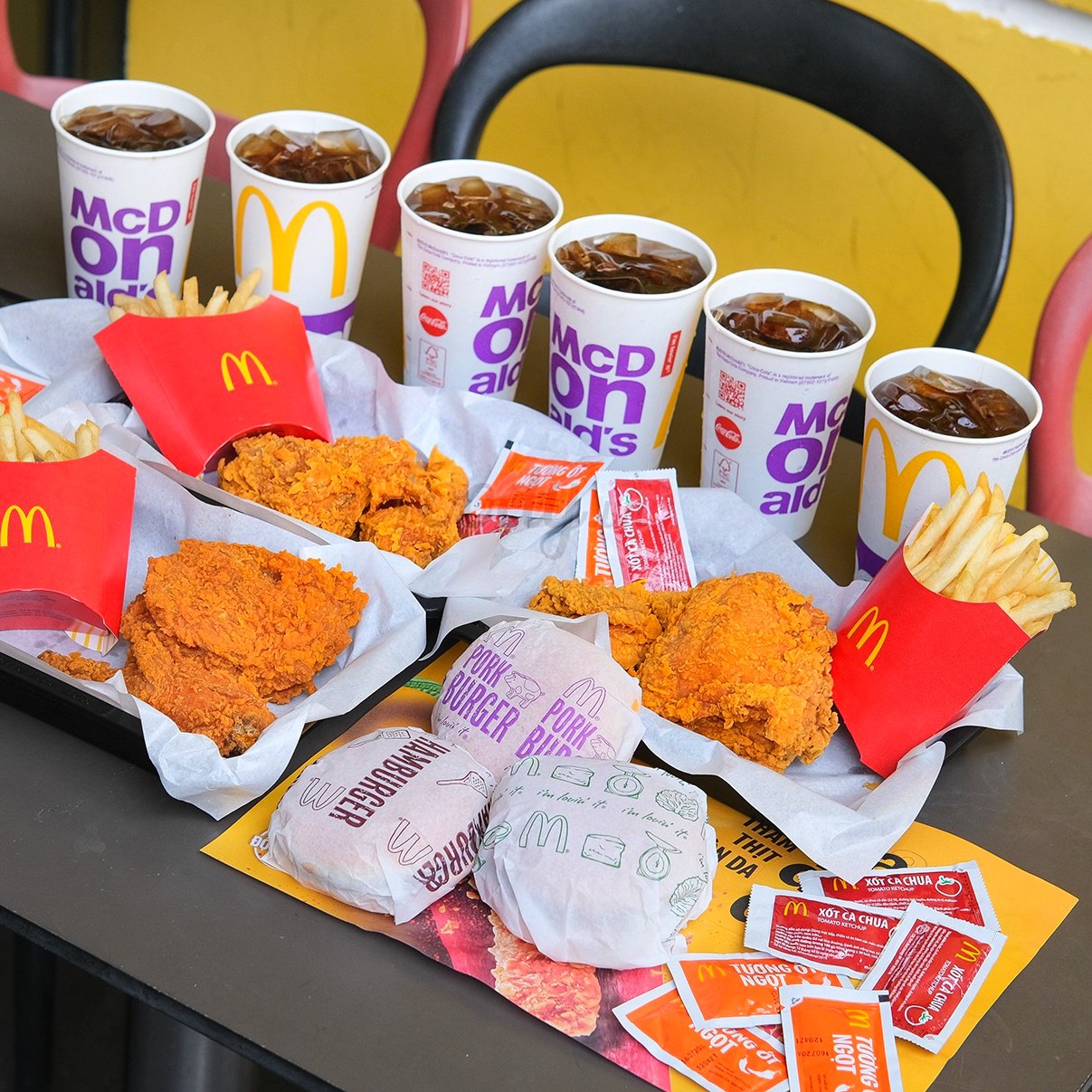
Paper cups, a seemingly simple product, have now become an indispensable part of modern life. From small cafes to luxury restaurants, from schools to offices, the image of familiar paper cups is always present.
Paper cups, seemingly simple products, have become an indispensable part of modern life. From cozy cafes to luxurious restaurants, from schools to offices, the familiar image of paper cups is always present, silently contributing to the convenience and civility of society. Their practicality, relative eco-friendliness, and high customization potential in design have elevated paper cups to a new level, becoming an effective marketing tool for brands. However, many questions still surround this product, requiring exploration and clarification. The following article will help you answer the most common questions about paper cups, from production and usage to environmental concerns.
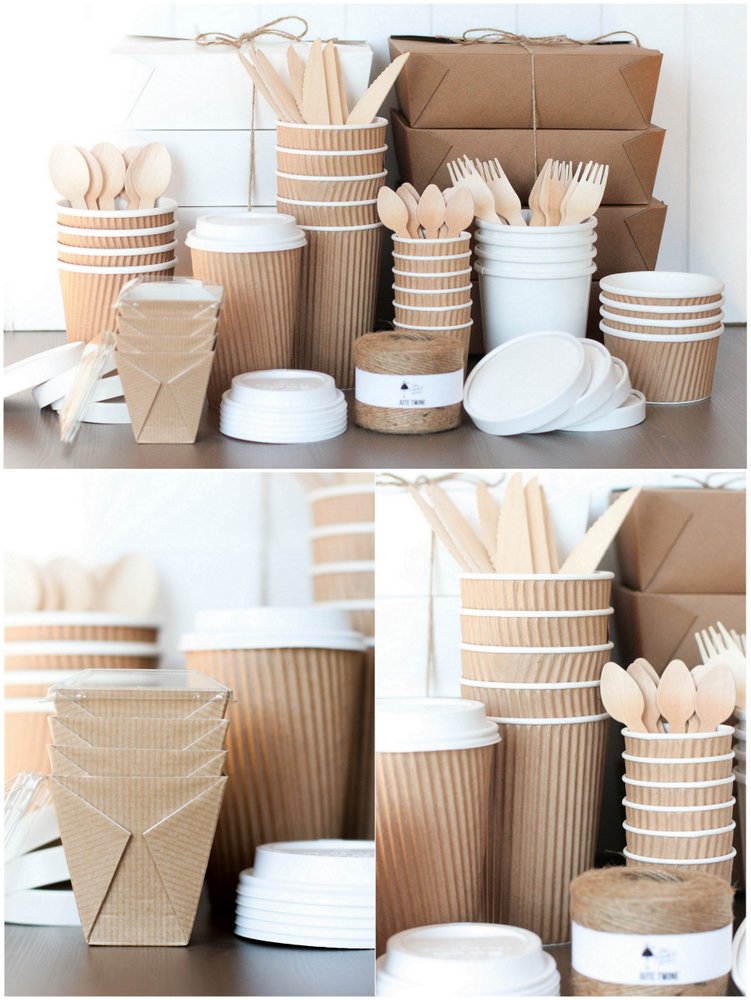
Before reaching consumers, paper cups undergo a rather complex manufacturing process, requiring a harmonious combination of technology and meticulous calculation. All this aims to create a product that meets quality requirements, food hygiene safety, and aesthetics. Understanding this process will help us more accurately assess the quality and value of paper cups.
The paper cup production process begins with selecting the main raw material: paper pulp. The quality of the pulp directly affects the durability, smoothness, and water resistance of the paper cup. High-quality pulp, usually pure pulp with high whiteness and few impurities, will create more attractive and durable paper cups. The pulp is then fed into molding machines where it is pressed and shaped into cups. This stage requires high precision to ensure consistent size and shape of the paper cups. A strict quality control process is applied throughout to eliminate defective cups.
Technological advancements allow for the creation of paper cups in various sizes and designs. From small cups for espresso to larger ones for milk tea or fruit juices. There are even paper cups designed with intricate patterns and eye-catching prints, contributing to the aesthetic value of the product.
To make paper cups capable of holding drinks without getting soggy, a PE (Polyethylene) coating is used. This thin layer plays a crucial role in preventing water from seeping into the paper, maintaining the cup's shape, and keeping the drink from diluting. The composition and quality of the PE coating also affect the food safety of the paper cup. The use of PE coating is strictly controlled to ensure it contains no harmful substances and is safe when in contact with food. Currently, there's a trend towards using bio-based, environmentally friendly coatings, which many manufacturers are interested in and applying.
After completing the cup body, the printing and packaging process will make the paper cups more attractive and increase their commercial value. Printing on paper cups allows brands to display their messages, logos, and images, building brand identity in a unique way. Modern printing technology allows for sharp printing and vibrant colors, meeting diverse customer needs. Packaging also plays an important role in protecting paper cups during transport and storage. Packaging is designed to fit the number of paper cups, ensuring convenience for stacking and transportation.
Despite their popularity, paper cups still raise many questions for consumers. From recyclability to microwave use, all are questions that need to be answered for users to confidently use the product effectively and safely.
The question about the recyclability of paper cups always receives much attention. The truth is that paper cups are not entirely made of paper, but also have a PE coating. This coating makes the recycling process more complex. However, this doesn't mean paper cups can't be recycled. With modern recycling technology, separating the PE coating from the paper is entirely feasible. Many recycling plants worldwide have invested in advanced technology lines to separate PE layers and paper pulp, then recycle them into other products such as new paper, plastic materials, etc. Recycling paper cups requires effort from consumers (through waste sorting) and investment in recycling technology from businesses.
However, the recycling efficiency of paper cups also depends greatly on the quality of the PE coating used. Bio-based, environmentally friendly coatings will make the recycling process easier and more effective. Choosing paper cups from brands committed to using environmentally friendly materials will contribute to promoting recycling and protecting the environment more effectively.
Many people still wonder whether paper cups can be used in microwaves. The short answer is: It's not recommended. The high temperature in microwaves can melt the adhesive layer of paper cups, causing leaks and even fires. Moreover, the PE coating on paper cups also can't withstand high temperatures, easily deforming and releasing harmful substances. To ensure health safety, it's best not to use paper cups in microwaves. Choose more suitable food containers for heating food in microwaves.
This once again proves the necessity of accurate information when using materials for food and beverage processing. Pay attention to information printed on product packaging and follow usage instructions to ensure absolute safety.
The market currently offers many different sizes of paper cups. This diversity meets the diverse usage needs of users. From small paper cups used for espresso, to larger paper cups used for milk tea or fruit juices. Choosing the right size of paper cup not only helps preserve drinks better but also brings higher aesthetic value.
Besides size, users also have many choices in materials and colors. Traditional white paper cups, kraft paper cups with a natural style, or paper cups printed with eye-catching patterns. Choosing the right type of paper cup depends on the purpose of use as well as user preferences. Understanding this diversity helps users easily choose the most suitable type of paper cup for their needs.
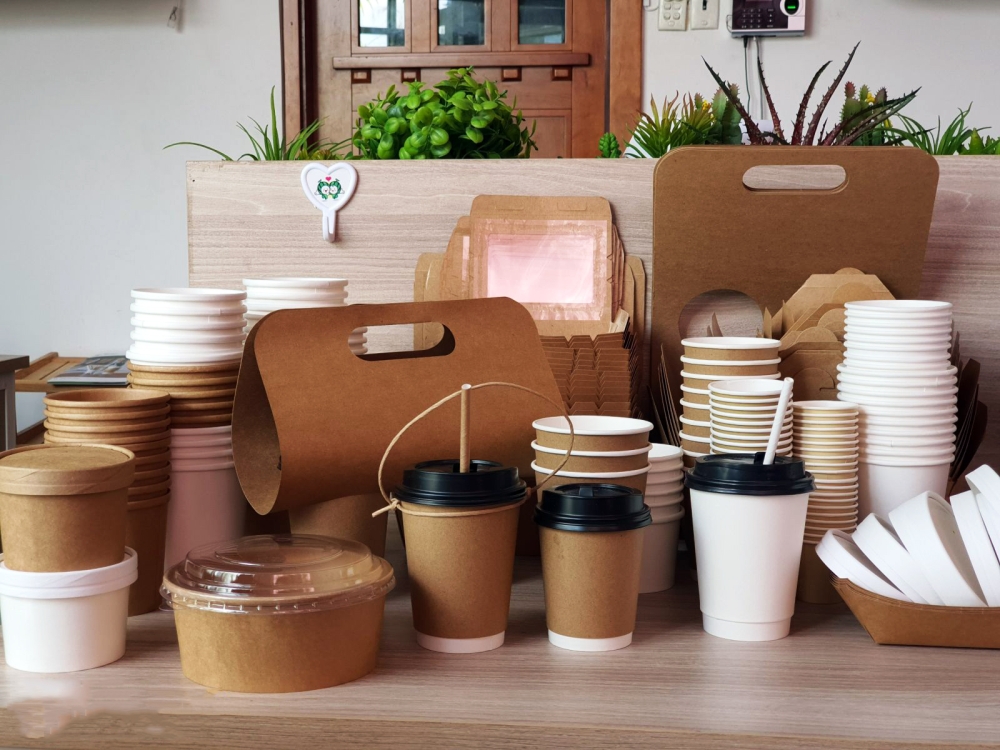
Paper cups are not just containers for drinks but also an effective marketing tool. The ability to print directly on the cup body allows businesses to be creative, creating unique designs that attract customer attention.
A beautifully designed paper cup, with a prominent brand logo and impressive images, will attract customers and create differentiation from competitors. Paper cup design needs to be consistent with the brand, express its unique personality, and create a good impression in customers' minds. A unique, creative paper cup design will attract attention and create curiosity, encouraging customers to want to learn more about the product or service.
Besides, print quality is also very important. Images must be sharp, colors must be vibrant, ensuring durability, not smudging or fading during use. Choosing appropriate printing technology also affects production quality and costs.
Paper cups are used once, but the brand message printed on them can be widely spread. Customers carry paper cups everywhere, inadvertently promoting the brand on every street. This is a cost-effective and highly efficient form of advertising, creating powerful dissemination. Especially if paper cups are designed impressively and with personality, the brand's spread potential will be even higher.
Customers will remember the brand not only through enjoying the drink but also through the image printed on the cup, creating a strong connection between the product and the brand. For this reason, paying attention to the design and quality of paper cups is a necessary factor for marketing campaigns to bring the highest efficiency.
.jpg)
Today, consumers are increasingly concerned about environmentally friendly products. Using paper cups made from recycled materials or that are biodegradable is a big plus for businesses. This shows the business's concern for the environment and creates a positive image in the eyes of customers.
Investing in using environmentally friendly paper cups is not only good for the environment but also a smart marketing strategy, attracting the attention of environmentally conscious customers.
Paper cups, though seemingly simple products, carry many complex factors, from production to application and environmental impact. Understanding more about paper cups not only helps users use the product effectively but also contributes to promoting the development of the paper cup manufacturing industry towards sustainability and environmental friendliness. Our choices, little by little each day, will make a big difference for the future.
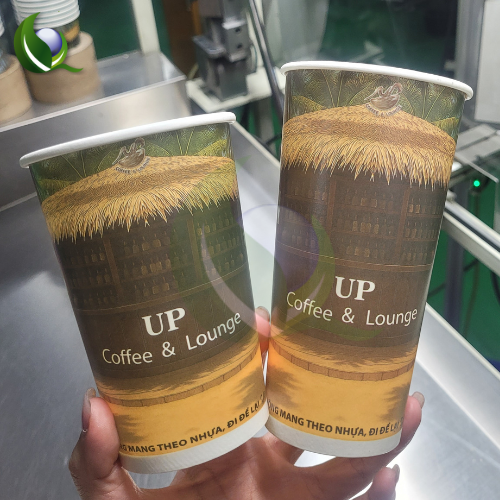
Switching from plastic to paper cups is a smart investment strategy that helps F&B businesses not only optimize operational costs but also build a sustainable brand image and attract a large customer base that values environmental responsibility. This is no longer just an option—it’s a strategic move to assert market position and increase competitiveness in an increasingly demanding landscape.
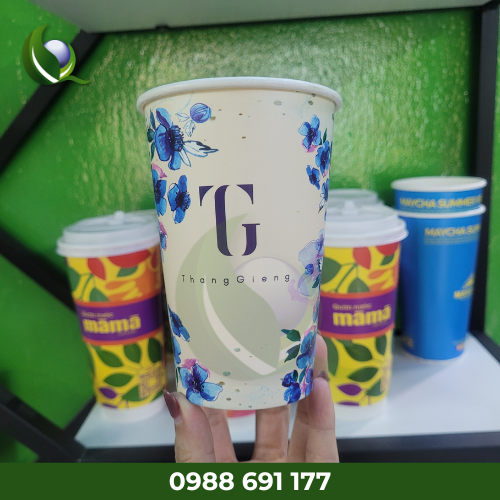
Paper cups and the shift in Vietnamese consumer habits are shaping a greener future—one where every small choice contributes significantly to the environment and public health, while also unlocking golden opportunities for F&B businesses. At Ly Giấy Việt Nam, we see this transition as an inevitable wave, offering an optimal solution for both consumers and brands aiming for sustainable...
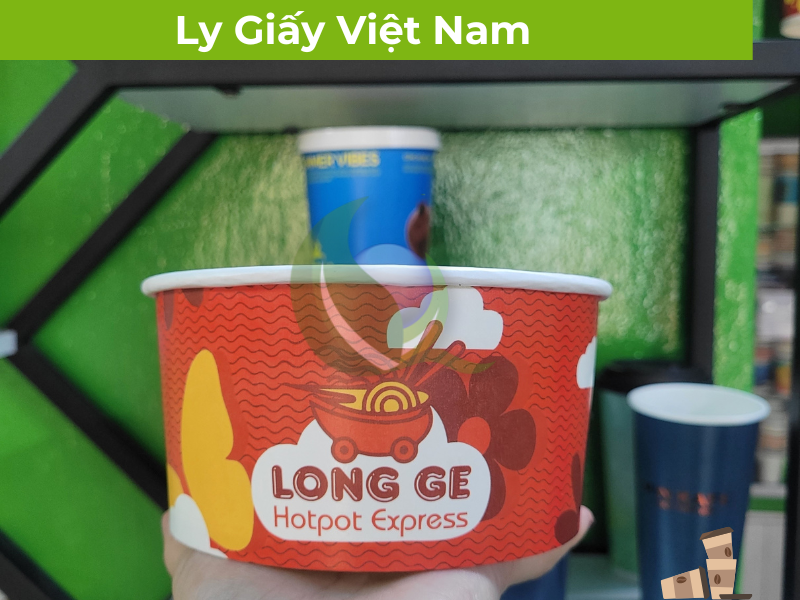
Paper Bowls: The Ideal Solution for Hot Dishes Like Pho, Noodle Soup, and Broth More than just a packaging trend, paper bowls are a strategic decision that enhances customer experience and strengthens brand value in the highly competitive food delivery market. Ly Giay Vietnam is proud to offer high-quality paper bowl products that fully meet the criteria of safety, aesthetics, and business...
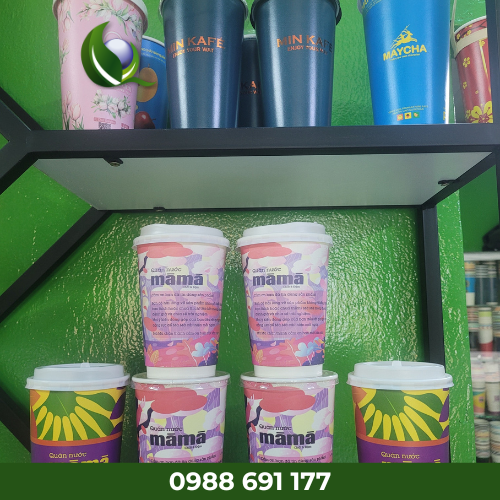
The trend of using paper cups in the F&B (Food & Beverage) industry is not just a temporary trend but has become a green revolution, reshaping the entire appearance of the modern food and beverage industry.
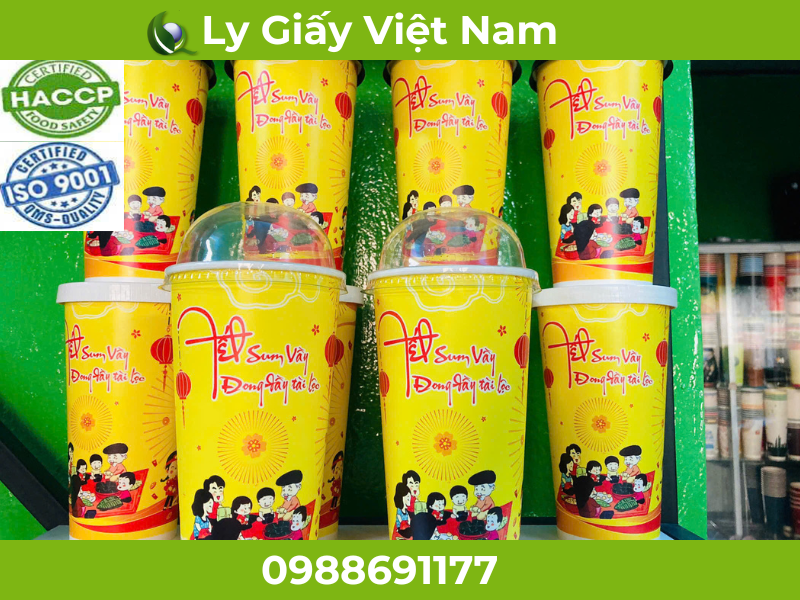
The process of producing paper cups that meet food safety standards is a series of complex stages, requiring precision and strict compliance with food safety regulations
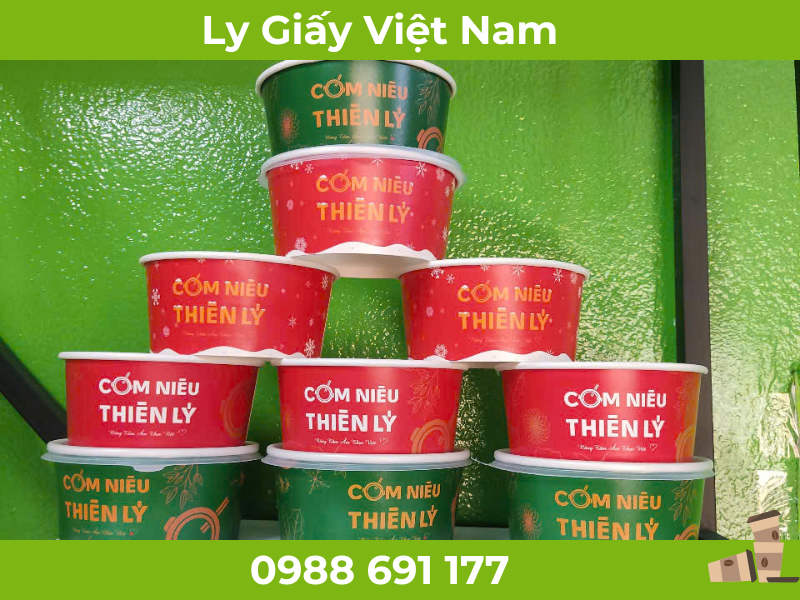
How to attract customers with beautiful packaging is a very important topic in building and developing a brand.
Comment & review